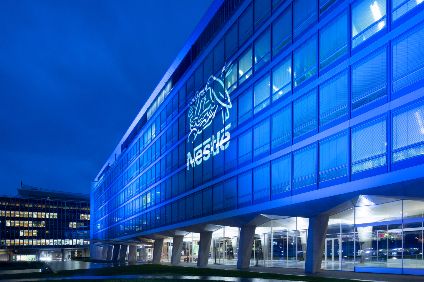
Nestlé has outlined its capex plans for China, the company’s second-largest market by sales, including the setting up of its first facility in the country for plant-based products.
A series of investments, totalling more than CHF100m (US$103.5m), are to made in the Tianjin Economic-Technological Development Area (TEDA), in the north of the country.

Discover B2B Marketing That Performs
Combine business intelligence and editorial excellence to reach engaged professionals across 36 leading media platforms.
As part of the programme, Nestlé will build its first production facility in Asia for plant-based products.
In addition, there will be more investment for Nestle’s confectionery business with an upgrade of the production line for the company’s Nestlé Chengzhen Wafer brand.
With pet ownership on the rise in China, Nestlé, meanwhile, said there would also be “a significant capacity expansion” of its existing pet food plant in Tianjin.
just-food asked Nestlé to provide certain further details on the investment in plant-based production. It declined to be more specific on the types of plant-based products to be manufactured at the factory. “We are not sharing that yet, we will be happy to share when we launch the products. What we can say is plant-based products will be very much in line with the trends emerging in China,” a spokesperson said. “If everything goes smoothly, the plant-based product will start production and products will be launched by the end of this year. The focus for the moment is on the Chinese market.”

US Tariffs are shifting - will you react or anticipate?
Don’t let policy changes catch you off guard. Stay proactive with real-time data and expert analysis.
By GlobalDataLast month, Nestlé announced a strategic review for its peanut-milk and porridge business in China, one of the assets in the market that had seen its future become the subject of media speculation.
The world’s largest food group said it had “decided to explore strategic options” for its Yinlu unit in China. Those options do include a potential sale, Nestlé underlined.
In October, Bloomberg reported Nestlé was weighing up the options for two of its Chinese businesses – Yinlu and confectionery unit Hsu Fu Chi. Nestlé acquired both businesses in 2011.
Last month, the news agency reported JPMorgan Chase & Co. had been appointed to oversee the sale of Yinlu and had reached out to potential suitors.
Both Yinlu and Hsu Fu Chi have had specific challenges, predominantly from stiff local competition, and Nestlé has been struggling to breathe fresh life into the assets.
Among Nestlé’s first-quarter sales figures, also published last month, the company said its sales in China had fallen at a “double-digit” rate due to “a significant sales decline” for the out-of-home channel amid the country’s Covid-19 lockdown and the timing of Chinese New Year.
Nestlé’s said its sales in China of infant cereals and Purina pet-care products rose at a “double-digit” rate.
Greater China accounts for 8% of Nestlé’s total sales, making the market the company’s second largest. Nestlé’s sales in Greater China were CHF6.91bn in 2019.





